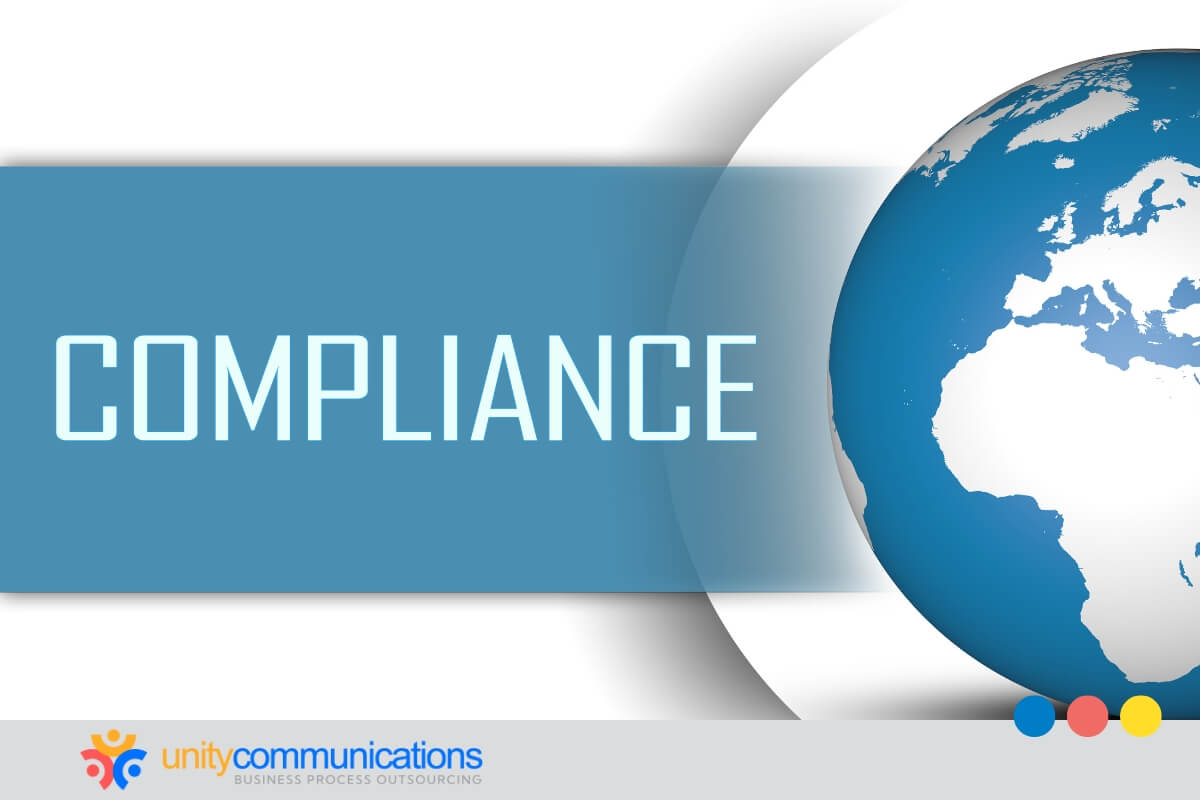Table of Contents
Unlike business process outsourcing (BPO), where companies contract third parties to handle specific processes, global capability centers (GCCs) are wholly owned offshore centers that let businesses keep operations in-house while benefiting from worldwide talent and cost efficiencies.
Specifically, GCCs in outsourced DevOps support offer superior control, security, scalability, and innovation. Acting as strategic shared services hubs, they align with core business goals.
This comprehensive guide presents 10 proven best practices for maximizing GCC effectiveness in DevOps operations, from initial assessment through long-term strategic growth.
1. Evaluate the suitability of GCCs in outsourced DevOps support

What is BPO in DevOps, and how do GCCs enhance it? Unlike traditional outsourcing, GCCs in outsourced DevOps support are company-owned centers outside the headquarters. They provide many benefits, from stronger oversight to direct access to global talent for DevOps, data analytics, and other critical functions.
However, because the setup can become complex, it might not apply to all companies. To determine if a GCC is right for your DevOps strategy, consider these key factors:
- Strategic alignment. This center is ideal if you need tight integration with core IT, greater intellectual property (IP) protection, and long-term value creation through internal capability building.
- Cost-benefit analysis. By centralizing operations and leveraging skilled offshore talent, well-managed GCCs can deliver 20% cost savings, much more than 3% from traditional outsourcing.
- Talent access. You can build GCCs in talent-rich regions. For example, the Philippines produces around 150,000 to 180,000 tech and engineering graduates annually, although numbers dropped during the pandemic. It offers deep talent pools and a strong competitive edge.
- Scalability and complexity. GCCs are best suited for sustained, complex DevOps workloads, where operational efficiency outweighs short-term outsourcing fixes.
Once you’ve assessed fit, the next step is enabling strong communication and collaboration with your GCC team.
2. Establish clear communication and collaboration protocols
Strong collaboration is essential to making GCCs in outsourced DevOps support successful. With teams across regions, clear and consistent communication helps bridge gaps and boost performance. Remote teams with defined communication structures outperform those without them.
Start by aligning everyone on the same tools, such as Microsoft Teams, Slack, or Zoom, and define when to use each. Set clear expectations. For example, use instant messaging for quick updates, project boards for task tracking, and video calls for planning or retrospectives.
Next, establish structured collaboration routines: daily stand-ups, weekly sprints, and documented progress updates for alignment. Overlapping “core hours” and asynchronous tools such as shared wikis or recorded demos maintain momentum across time zones.
Finally, foster a culture where offshore and onshore teams collaborate as equals. Encourage inclusive leadership, regular team-building, and a shared services mindset. When done right, communication becomes the glue that holds global DevOps together.
3. Standardize DevOps processes and tools
Standardize your processes and tools across all teams to get the most from GCCs in outsourced DevOps support. Aligning GCC workflows with core IT operations promotes seamless collaboration and consistent quality.
Adopting unified toolsets boosts efficiency and productivity. Here’s how to do it:
- Start with a uniform DevOps toolchain. Use the same platforms for tracking (e.g., Jira), version control (GitHub or GitLab), continuous integration and delivery or CI/CD (Jenkins or Azure DevOps), and deployment (Kubernetes). They eliminate silos and provide a single source of truth.
- Define and document standard operating procedures. From code review protocols to incident response playbooks, consistency accelerates onboarding and improves scalability.
- Support your GCC with centralized, cloud-based development and testing environments. Enforce consistent setups through infrastructure as code or IaC (e.g., Terraform).
- Run regular audits and use data analytics to track process adherence and pinpoint bottlenecks.
Standardization paves the way for efficient automation—your next key step.
4. Automate to streamline DevOps workflows
Automation is a game-changer for DevOps, especially when managing global teams. Outsourced DevOps support reduces human error, accelerates delivery, and frees teams to drive innovation instead of getting stuck in repetitive tasks.
Unsurprisingly, automation remains the top digital enabler for global service centers. Consider these tips when automating processes:
- Start with CI/CD pipeline automation. Every code from the GCC or HQ should trigger automated builds and tests. This ensures consistent quality, faster releases, and reliable deployments.
- Use IaC and cloud automation. With tools such as Terraform or Ansible, GCC engineers can spin up dev or staging environments with a click, mirroring production setups. Many GCCs also adopt robotic process automation (RPA) and artificial intelligence (AI) to automate ticket triage and cloud resource optimization.
- Test and monitor automation. Streamline unit and integration testing to maintain code quality across regions. Use intelligent alerts and monitoring to catch issues early and let a GCC engineer fix a problem before your HQ wakes up.
Embracing automation transforms your GCC into a 24/7 DevOps engine, boosting speed, cutting operating costs, and reinforcing your competitive edge.
5. Ensure security and regulatory compliance

Security and compliance are non-negotiable when leveraging GCCs in outsourced DevOps support. Your GCC must match or exceed the core organization’s security standards for cross-border operations.
The good news? These centers can enhance compliance through centralized oversight and tighter controls. Boost compliance with these tips:
- Adopt global frameworks such as ISO 27001, SOC 2, NIST, and OWASP.
- Apply consistent access and encryption protocols.
- Conduct regular audits as you would onshore.
- Stay compliant with both local and global regulations. For instance, the GDPR in Europe and India’s DPDP Act mandate clear data handling practices and key legal considerations in BPO and GCC operations.
- Establish dedicated compliance teams within their centers to manage these obligations and secure data transfers.
- Integrate security into your DevOps pipeline using automated scans, policy-as-code, and zero-trust architecture. Treat the GCC as part of your security perimeter.
- Monitor logs through a centralized security information and event management (SIEM).
GCCs protect your systems and boost trust with stakeholders and customers while supporting long-term resilience.
6. Integrate GCC teams with the existing IT infrastructure
To be effective, GCCs in outsourced DevOps support must function as an integrated part of your core IT team, not as a disconnected unit. Seamless alignment across systems, tools, and networks is essential for maintaining operational efficiency.
The following tips can help you achieve it:
- With a secure, unified network, use enterprise-grade virtual private networks (VPNs) or direct links such as AWS Direct Connect or Azure ExpressRoute.
- Centralize identity and access management with tools such as Active Directory or Single Sign-On to give GCC engineers the proper access and permissions.
- Ensure everyone works on the same DevOps platforms, such as GitHub, GitLab, and CI/CD pipelines. Cloud computing minimizes latency and simplifies tool access globally.
- Standardize environments with configuration management and containerization (e.g., Docker, Kubernetes) for consistency across dev, staging, and production environments.
- Hold regular sync meetings between your core IT and GCC teams to align on infrastructure updates, security changes, and deployment plans. Embedding onshore engineers into GCC operations, even virtually, strengthens collaboration.
With the proper integration, your GCC can fully manage deployments, infrastructure, and support, paving the way for improved performance and long-term DevOps success.
7. Monitor performance metrics and drive continuous improvement
“What gets measured gets managed.” To determine whether your GCC delivers results, set clear metrics and build a culture of constant improvement.
Start with key DevOps and SRE metrics such as deployment frequency, lead time for changes, change failure rate, and system uptime. Add productivity indicators such as tickets resolved or automation coverage. Tracking these across GCC and onshore teams gives a clear picture of distributed performance.
Then:
- Use a unified dashboard. It displays real-time metrics, aligns everyone, and quickly highlights areas needing refinement.
- Hold regular reviews and retrospectives to turn data into action. Don’t blame, but problem-solve. Collaborate across teams to fix bottlenecks or training gaps.
- Benchmark and share best practices. If a GCC outperforms HQ on a metric, analyze and replicate that success. Promote knowledge sharing through rotations or cross-team reviews.
Ongoing measurement and refinement ensure your GCC can support and improve DevOps.
8. Navigate cultural and time zone differences strategically
One of the biggest outsourcing challenges in DevOps support isn’t technical; it’s human. If left unaddressed, cultural nuances, language gaps, and time zone differences can slow down even the best teams. Proactively managing these differences is essential for team harmony and productivity:
- Raise cultural awareness. Provide cross-cultural training for onshore and GCC teams. Encourage understanding of local customs, holidays, and work styles. Even simple culture-sharing sessions can build empathy and improve collaboration.
- Plan overlap hours, even two hours a day, to align teams in real time. Outside those windows, adopt a follow-the-sun model to enable 24/7 workflows. For instance, let the GCC team handle deployments during their daytime so progress continues while HQ sleeps.
- Establish clear communication norms. Stick to a shared language, avoid slang, and use written summaries to prevent confusion. Rotate meeting times to fairly distribute early or late calls.
- Build personal connections. Celebrate milestones, host virtual coffees, and if possible, organize in-person visits.
A strong, inclusive culture improves collaboration and boosts morale and retention.
9. Develop comprehensive acquisition and retention strategies

Your GCC’s success in outsourced DevOps support depends on your people. It needs a strong talent strategy, especially as competition intensifies. Some GCCs offer up to 20% higher salaries than traditional IT firms to secure skilled talent.
Recruit and retain experts with these tactics:
- Focus on local recruiting and branding. Partner with universities, boot camps, and tech hubs.
- Position your GCC as a top employer. Promote opportunities to work on global projects, advanced technologies such as cloud computing, and large-scale systems.
- Offer competitive compensation and career growth. Don’t undercut on pay to avoid costly attrition. Provide clear paths from junior roles to leadership. Many mature GCCs use “agile talent models” with flexible work, upskilling, and internal mobility to retain top performers.
- Invest in training and upskilling. Support certifications, workshops, and mentoring through a local DevOps center of excellence.
A motivated, well-supported team can meet current needs and fuel future DevOps growth.
10. Plan for scalability and future DevOps evolution
Scalability is key to long-term success with GCCs in outsourced DevOps support. As technology and business needs evolve, your GCC must grow with them. Here are ideas on how to accomplish this:
- Design a scalable team structure. Begin with a core DevOps team, then expand into areas such as cloud, security, or data engineering as needed. Use modular team setups (e.g., pods) and consider phased models such as build-operate-transfer to scale efficiently.
- Involve your GCC in technology roadmap discussions. If your organization plans to adopt GitOps, AIOps, or serverless platforms, prepare the team through training or pilot projects. Many companies now treat GCCs as innovation hubs, testing AI-driven DevOps solutions before rolling them out enterprise-wide.
- Maintain capacity for growth by planning for infrastructure and staffing needs. Use scalable cloud environments and consider hybrid models to accommodate headcount increases, especially as GCCs expand globally.
- Continuously optimize R&D and processes. Beyond DevOps, your GCC can drive supply chain or finance value by automating business workflows.
Understanding how outsourcing works at scale means building a GCC that does more than save costs. With scalability and flexibility built in, it becomes a long-term strategic asset that drives real business value.
The bottom line
GCCs in outsourced DevOps support can deliver significant gains in efficiency, innovation, and cost savings, but only with the right strategy. Success requires the strategic implementation of each best practice outlined above, from initial assessment and process standardization to security compliance and talent development.
When executed effectively, your GCC evolves beyond a cost center to become a strategic innovation partner, driving competitive advantage through enhanced DevOps capabilities.
Ready to unlock these benefits? Let’s connect to explore how tailored GCC strategies can elevate your DevOps success.




